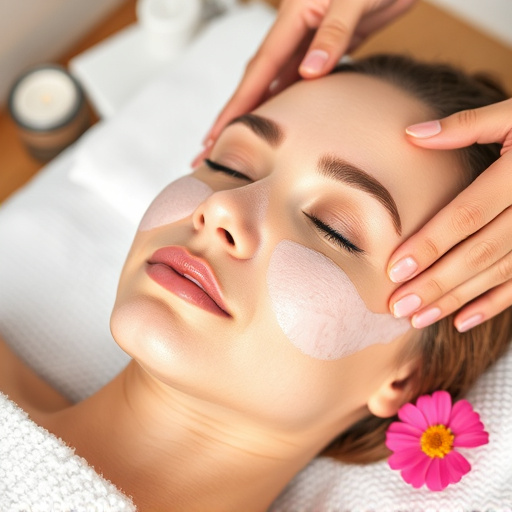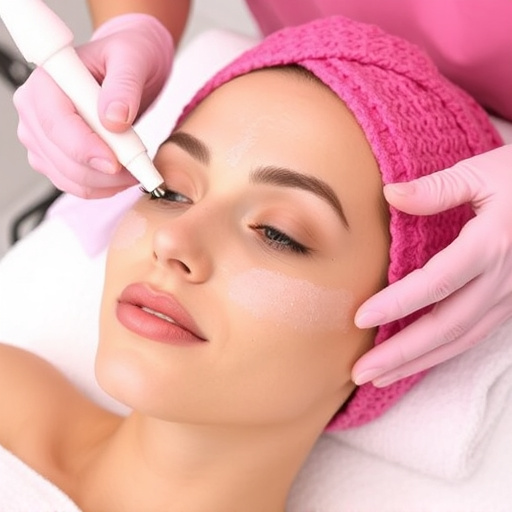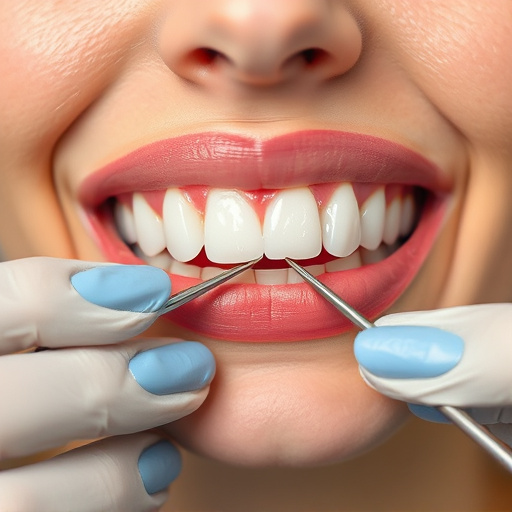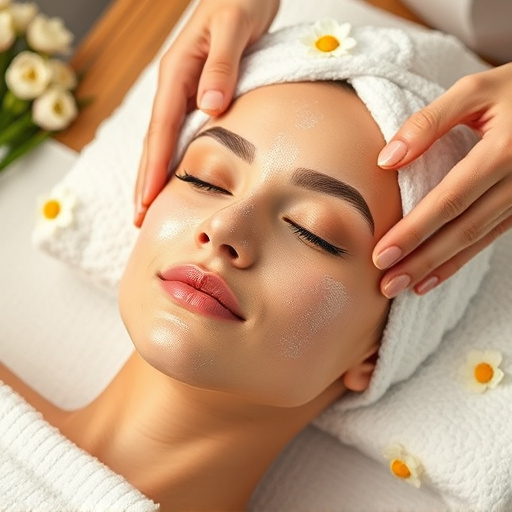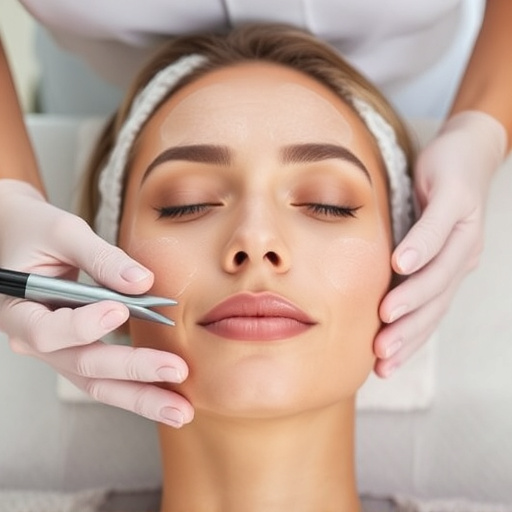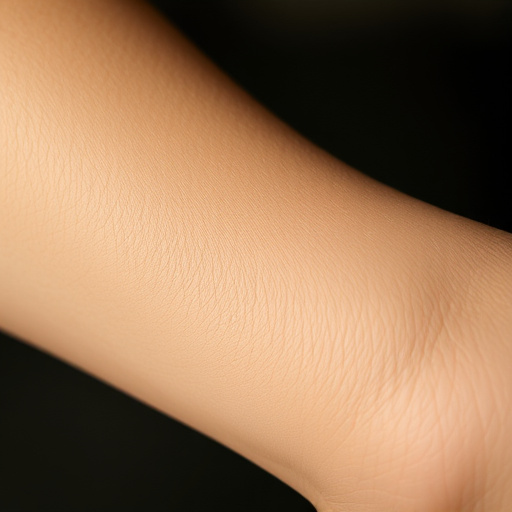Ingrown hair prevention involves understanding root causes like blocked follicles and harsh shaving. Professional skincare, topical solutions (e.g., salicylic acid, AHAs), chemical peels, and holistic practices like regular exercise, balanced diet, hydration, and gentle skincare are key. Consistent self-care routines are essential for effective long-term ingrown hair prevention.
Ingrown hairs, an unsightly and often painful condition, can be tackled effectively with a deeper understanding of their science. This article explores the intricate mechanisms behind ingrown hair development, delving into the causes that range from improper shaving techniques to skin irritation. We dissect reliable prevention methods, highlighting topical solutions and lifestyle changes for long-term relief. Discover evidence-based practices to combat this common issue and achieve smoother, healthier skin.
- Understanding Ingrown Hair Causes and Mechanisms
- Exploring Topical Solutions and Their Efficacy
- Lifestyle Changes for Long-Term Prevention Strategies
Understanding Ingrown Hair Causes and Mechanisms
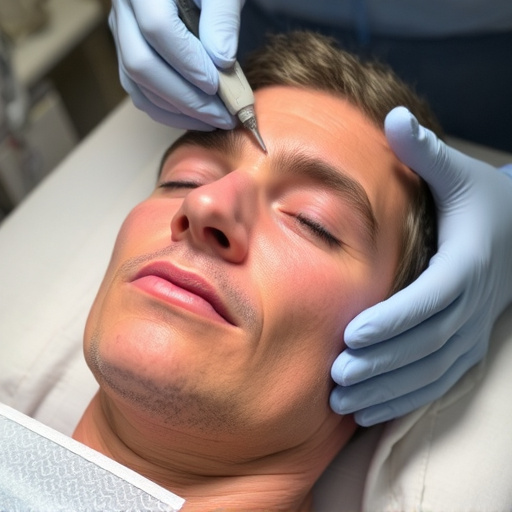
Ingrown hair prevention is a meticulous process that begins with understanding the causes and mechanisms behind this unsightly issue. Ingrown hairs form when hair follicles become blocked or irritated, leading to hair growth in reverse directions, under the skin’s surface. This condition is often triggered by factors such as poor exfoliation, harsh shaving techniques, or even tight clothing. The skin’s natural barrier is disrupted, allowing bacteria and other irritants to enter, causing inflammation and subsequent scarring.
Professional skincare plays a crucial role in addressing this issue. Customized facials, for instance, can deeply cleanse the skin, removing trapped hair and reducing inflammation. Additionally, these treatments often include specialized products that target wrinkle reduction, as ingrown hairs are sometimes associated with aging skin and sun damage. By adopting a comprehensive approach that combines proper hygiene, suitable skincare products, and regular professional treatments, individuals can effectively manage and prevent ingrown hair formation.
Exploring Topical Solutions and Their Efficacy
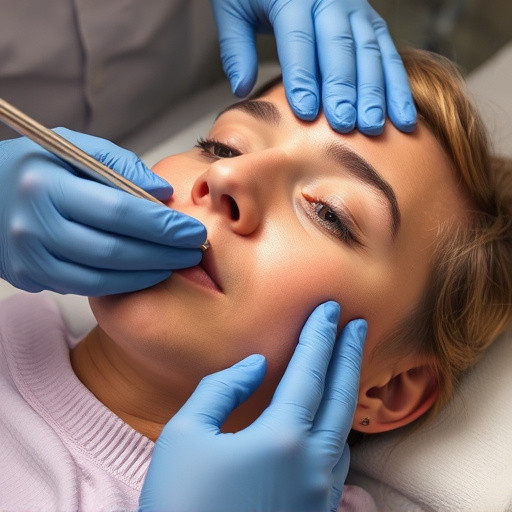
Exploring Topical Solutions for Ingrown Hair Prevention
In the quest for reliable ingrown hair prevention, topical solutions have emerged as a popular and effective approach. These products, often containing a blend of active ingredients, target the root causes of ingrown hairs, such as inflammation, blocked pores, and excessive keratin production. Ingredients like salicylic acid, commonly found in many over-the-counter treatments, are renowned for their exfoliating properties, helping to unclog follicles and reduce hair entrapment. Additionally, alpha hydroxy acids (AHAs), including glycolic acid, have gained popularity in medical spa services for their ability to smooth skin texture and promote healthier hair growth.
While topical solutions offer a non-invasive approach to ingrown hair prevention, certain procedures like chemical peels and acne treatments can also address the issue. Chemical peels, for instance, use concentrated acids to exfoliate deeper layers of skin, eliminating dead skin cells and unblocking follicles. Acne treatments, often combining retinoids and other anti-inflammatory agents, not only combat active acne but also help prevent ingrown hairs by regulating keratin production and maintaining clear pores. These medical spa services provide more intense interventions for those seeking rapid results or dealing with severe cases of ingrown hair issues.
Lifestyle Changes for Long-Term Prevention Strategies
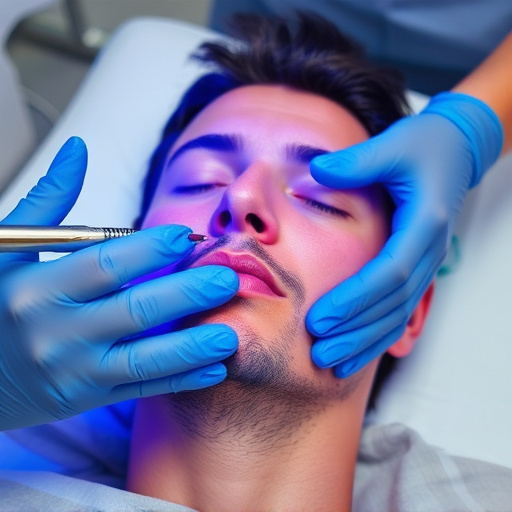
Adopting a healthy lifestyle plays a significant role in long-term ingrown hair prevention. Regular exercise and a balanced diet are key components; both help improve blood circulation, ensuring your skin receives adequate oxygen and nutrients. This promotes healthier hair follicles, reducing the likelihood of ingrown hairs. Additionally, staying hydrated keeps your skin supple and elastic, making it easier for hair to grow naturally and minimize the risk of inflammation or irritation that can lead to ingrowns.
Beyond these basics, focusing on gentle skincare practices is crucial. Avoiding harsh scrubs or exfoliants that can damage the skin barrier contributes to overall skin health. Incorporating gentle cleansers and moisturisers into your routine can help maintain a balanced skin pH, further reducing the chances of ingrown hair formation. Remember, consistent self-care routines and a mindful approach to daily habits are essential for effective long-term ingrown hair prevention.
By understanding the science behind ingrown hair causes and exploring effective topical solutions, along with adopting lifestyle changes, individuals can now employ reliable ingrown hair prevention methods. These strategies, ranging from specialized skincare routines to lasting lifestyle shifts, offer comprehensive solutions for those seeking a smoother, less irritable skin surface. Ingrown hair prevention is no longer a mere cosmetic concern but an achievable goal backed by scientific evidence.
